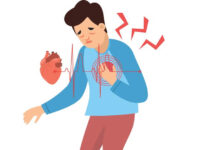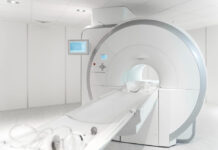Researchers at McGill University, in partnership with teams in Israel and Ireland, have developed a cutting-edge artificial intelligence tool that can detect complex regional pain syndrome (CRPS) by analyzing gut bacteria. This breakthrough holds the potential to revolutionize both diagnosis and treatment of this debilitating condition.
Understanding CRPS: A Persistent and Painful Condition
CRPS affects an estimated 400,000 to 2.1 million people globally. It typically emerges in a limb following an injury or surgery and often leads to chronic pain, far exceeding the discomfort of the original trauma. In addition to intense pain, patients frequently experience swelling, temperature changes, and discoloration of the skin.
“CRPS remains challenging to treat, with patients often experiencing prolonged suffering before receiving appropriate care,” explained Dr. Amir Minerbi, Director of the Institute for Pain Medicine at Rambam Health Campus in Israel and senior lecturer at the Technion—Israel Institute of Technology.
A Microbiome-Based Signature Identified
The team published their findings in the journal Anesthesiology, detailing how they used advanced machine learning algorithms to analyze gut microbiome samples from two patient groups—one in Israel and another in Canada.
Remarkably, their AI model, trained on data from Israeli patients, accurately identified CRPS in Canadian patients with over 90% precision. As per Medical Xpress, this cross-continental accuracy is particularly significant because gut microbiome composition usually varies widely between populations due to factors like diet, climate, and genetics.
“This is extraordinary,” said Emmanuel Gonzalez, lead author and researcher at the McGill Centre for Microbiome Research and Canadian Centre for Computational Genomics. “Despite natural variations, our AI recognized a consistent ‘microbiome signature’ of CRPS that transcends geography.”
Persistent Patterns May Reveal Susceptibility
The researchers uncovered a striking pattern: even patients who had undergone limb amputations—and no longer exhibited CRPS symptoms—still retained the same gut microbiome signature associated with the condition.
“This finding suggests the microbiome may play a foundational role in CRPS,” noted Dr. Yoram Shir, Professor in McGill’s Department of Anesthesia, who led the clinical research in Montreal. “Some individuals might have a gut microbiome that predisposes them to CRPS, with an injury acting as the trigger.”
One of the Largest Microbiome Studies in Pain Research
The study analyzed 120 microbiome samples and more than 100 plasma samples, making it one of the most extensive investigations into the relationship between gut bacteria and chronic pain to date. The results not only open the door to earlier diagnosis but also raise the possibility of developing microbiome-targeted therapies for chronic pain.























